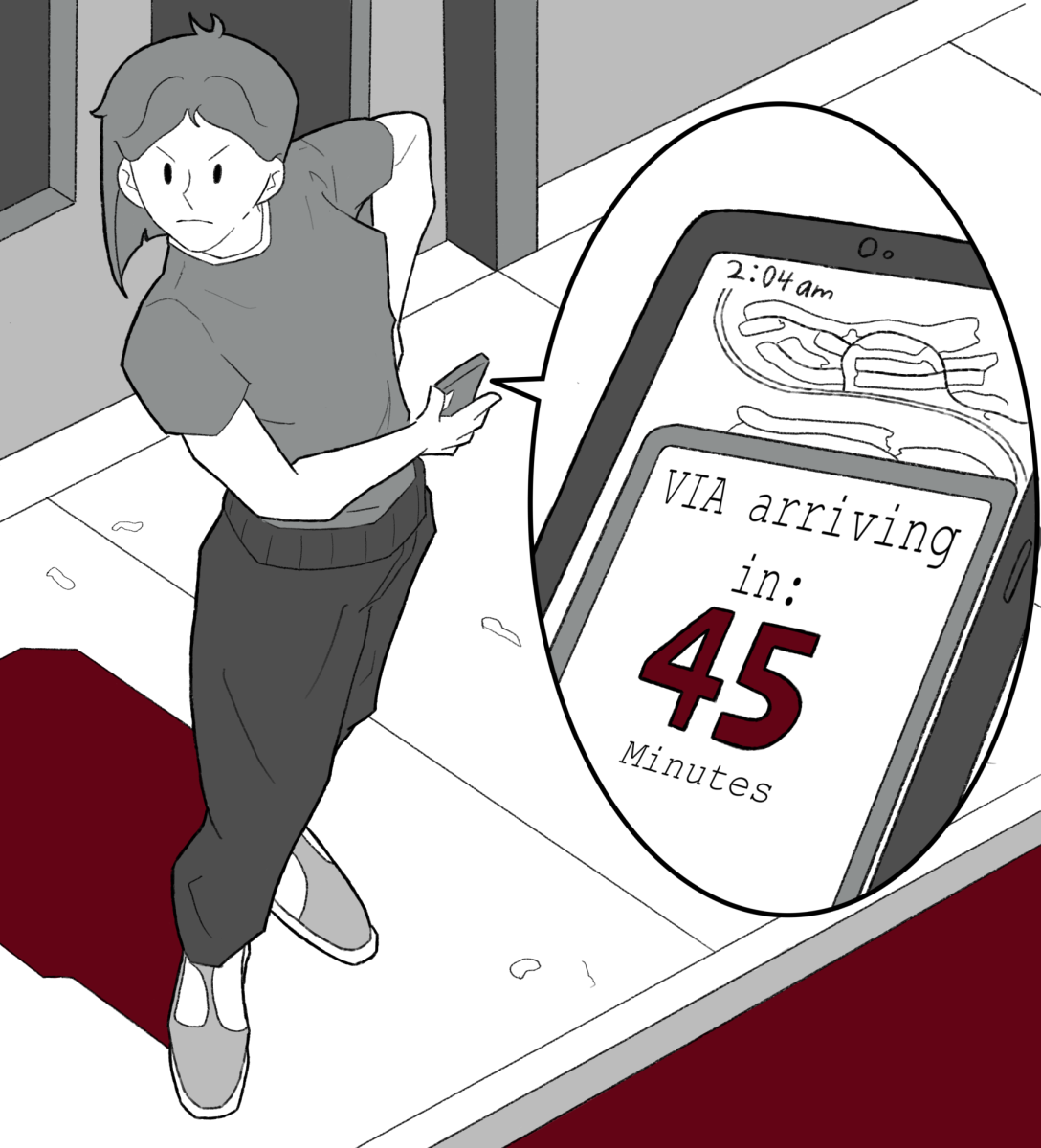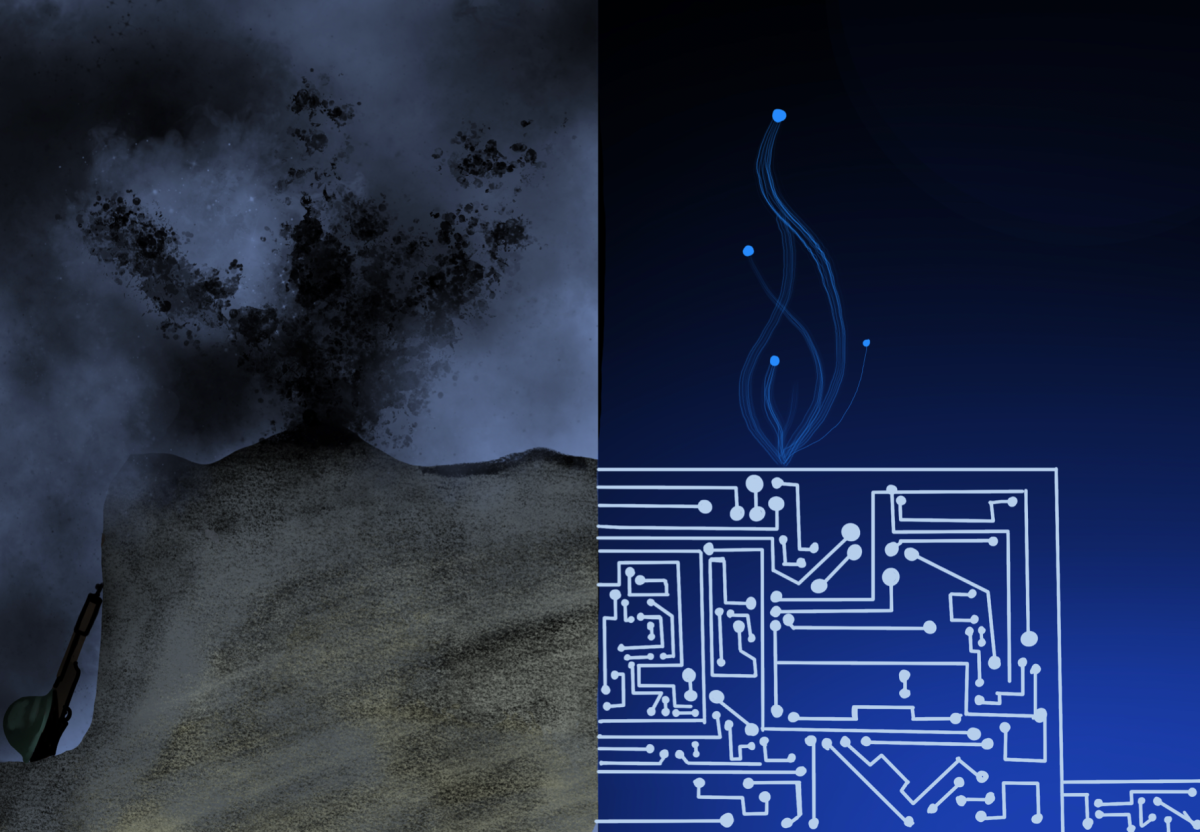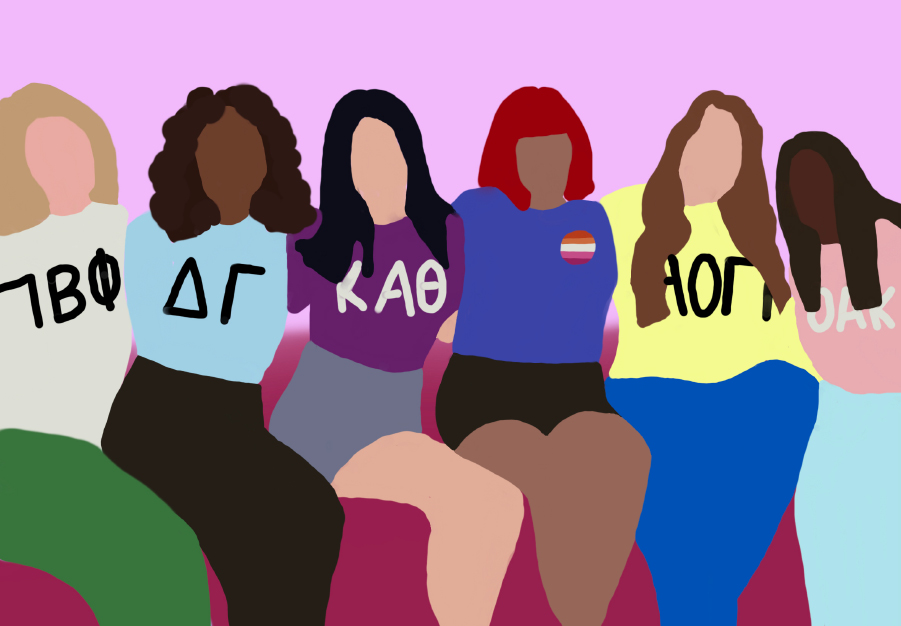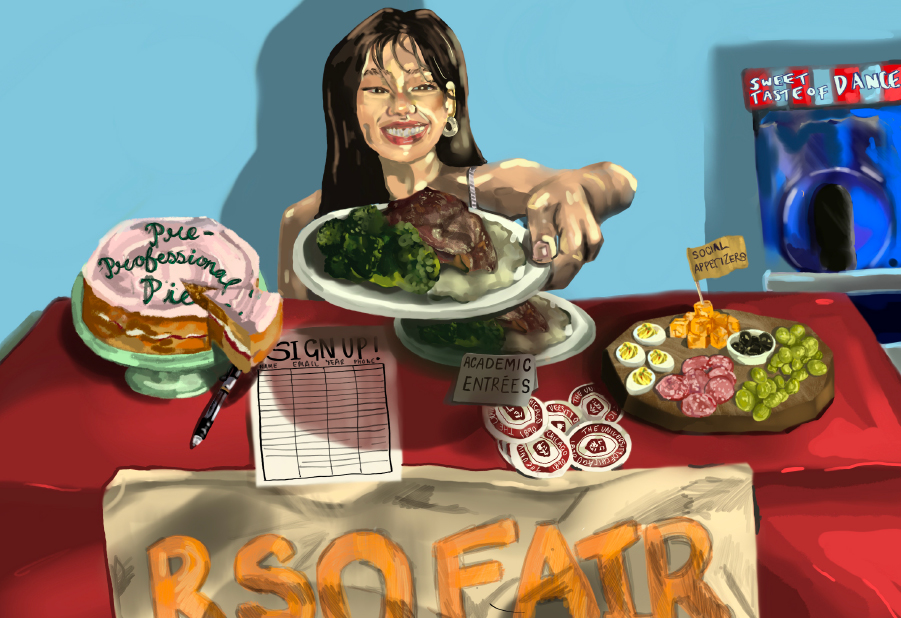I was working on my homework in my dorm lounge over the weekend when they walked in and sat down at the table. Known to my friends as lounge regulars, they talk in blaring voices and cause an exodus rivaling China’s annual Spring Festival migration of anyone trying to work. Though they had turned my noise-canceling headphones into useless pieces of plastic, I tried to concentrate. I wished I could have duct-taped my ears shut, and found some solace in knowing that they wouldn’t have made it very far if they were in A Quiet Place. Then they started matching each one of their surprisingly many friends to dog breeds. It was the Buzzfeed quiz of my nightmares. That’s when I decided to write about the benefits of silence.
Growing up, I was soft-spoken and tended towards silence more often than not. Yes, it meant that I had to occasionally repeat myself to be heard and was drowned out in certain conversations, but it worked for me. My quietness helped me stay calm, gather my thoughts, and to this day, stopped me from saying many foolish things. I could handle the times that people cut in front of me in lines without spurring confrontation. This is not to say that reticence is always the solution— I spoke up when I felt that I should. I spoke up when I was in middle school and a girl I didn’t know pointed at me in the playground and said “let the brown boy play on the swing.” I told her I had a name and what it was. I spoke up when guys got too physical on the basketball court—I wasn’t to be pushed around. I’m speaking up now. But staying quiet, in the right context, has not failed me.
Silence recharges us and can help us be more productive and creative. After a week or even a day of long classes, meetings, and a generally hectic schedule, even a few minutes of silent time can mitigate mental exhaustion. Certainly, socializing does have its own restorative benefits, but sometimes you just need a moment with yourself; continuous social interaction can be tiring, and silence can help prevent emotional fatigue. At UChicago, there is a tendency to go overboard with small talk about stress and exhaustion, problems that need more than just casual conversation to address. Take some time out for yourself, sleep in on weekends, skip a party or two— prioritize your health. Furthermore, working in silence, without distractions, can be greatly beneficial to productivity and creativity. This doesn’t mean you need to lock yourself in your room alone for hours—people can be just as productive working with ambient noise, with friends, or among strangers in a cafe. But there is a clear line between productive background noise and trying to get your work done while the people around you are loudly gabbing or watching some vlogger’s latest creation: “YOU WON’T BELIEVE WHAT HAPPENED NEXT!” This applies to the most egregious noisemakers: conversation is welcomed, but it would be more palatable were it less obnoxious and respectful to those trying to work or have their own conversations.
And yet, in America, silence seems to put many people at unease, even when it shouldn’t; any pause in a discussion that lasts more than a few seconds is branded awkward. Before coming to the US, I lived in India and the Philippines, and for the most part, silence was commonplace and rarely a faux pas. I didn’t feel the need to make dull small talk solely for the purpose of breaking some imagined monotony. Famed Studio Ghibli director Hayao Miyazaki remarked about this aversion to silence in movies, “The people who make the movies are scared of silence, so they want to paper and plaster it over. . . They're worried that the audience will get bored. They might go up and get some popcorn.” I’m a firm believer that in most cases, it’s only awkward if you let it be awkward. I can tell how comfortable someone feels with me based on how long they might let a lull in conversation last. My friends know that I might not say anything for a while, but it’s easy to catch acquaintances or people I’m meeting for the first time dart their eyes as they search for something to say.
Silence does not need to be filled with vapid conversation. It seems that “How are you?” has mutated into an apathetic one-liner, rather than an actual attempt to check in with someone or gauge their well-being. More often than not, you’re expected to reply with the disingenuous “good, how are you”—being candid about your actual state might surprise or even disappoint the asker. It shouldn’t be a substitute for a greeting where a “hello,” or even a smile and a nod would suffice. If you don’t actually care how someone is doing, or if you expect a cookie-cutter reply, don’t ask. There is absolutely no need to feign concern. At risk of this turning into a meme, I’m going to quote UChicago alumna Susan Sontag, who once said, “Silence remains, inescapably, a form of speech." The world isn’t going to end if you don’t ask a shallow question or fill the perceived void with some stale comment about Chicago weather.
Ultimately, silence is contextually useful, and often better than the alternative. I don’t mean to deter anyone’s freedom of expression—but please, use that freedom wisely and remember that quietness can be expressive. And that isn’t just the irked-by-the-lounge-guys part of me speaking. There’s a time and place for every conversation—whether it’s about race relations or a new, obnoxious YouTube video. Discernment is key.
Soham Mall is a second-year in the College.







